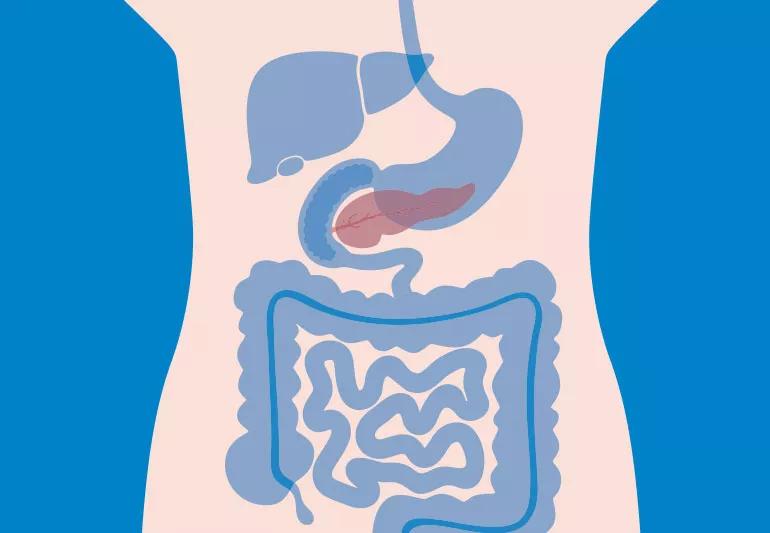Make sure you choose an experienced surgeon

If you have problems with your pancreas — pancreatic cancer or pancreatitis, for example — surgery may provide some good options for treatment. While there are a variety of pancreatic operations, here is a look at two specific procedures:
Advertisement
Cleveland Clinic is a non-profit academic medical center. Advertising on our site helps support our mission. We do not endorse non-Cleveland Clinic products or services. Policy
One surgery, called the Whipple procedure, can be an option for patients with pancreatic cancer or benign, noncancerous conditions in the head of the pancreas, says surgeon Robert Simon, MD. The head of the pancreas is located on the right side of the abdomen and shares a blood supply with the first portion of your small intestine. The bile duct also runs through the head.
The procedure is named for Allen Oldfather Whipple, MD, the surgeon who first performed it in 1935 and is also known as a pancreaticoduodenectomy. It involves removal of the head of the pancreas, the first portion of the small intestine, part of the bile duct and the gall bladder. The surgeon then reconnects the remaining intestine to the pancreas, bile duct and stomach.
It is a complex operation, Dr. Simon explains, and can last six to eight hours. He emphasizes that if the Whipple procedure is an option for treatment, you should first discuss it in detail with a surgeon at a large hospital who has extensive experience performing the operation.
“Patients can get back to living a normal life if they select a high volume surgeon at a large hospital with experience in the operation and used to taking care of them post-operatively,” he says. “At Cleveland Clinic, doctors use minimally invasive robotics for a selective group of patients. The number of complications and outcomes is generally the same as with an open procedure for pancreatic cancer.”
Advertisement
As with any type of surgery, there can be complications, Dr. Simon says. Anytime an organ is taken apart and put back together, there is a risk for a leak.
“The one most common with the Whipple procedure is a pancreatic leak, where the connection to the pancreas doesn’t heal properly,” he adds. “The organ itself is typically soft and the digestive enzyme manufactured by the pancreas often makes it more difficult for those tissues to heal.”
Doctors often can treat the leakage with a simple drain tube. However, sometimes they must take a more involved approach. That is another reason why it’s important to choose a hospital or medical center that is comfortable managing the potential complications of a Whipple procedure, Dr. Simon emphasizes.
Gastroparesis is another complication which may develop. This occurs when the stomach takes time to wake up and does not empty properly after the operation. It can resolve in a few days, but it may take on the order of months to recover. This may require various medications to help the stomach empty better, but it may also require drainage feeding tubes and feeding tubes to help get the patient adequate nutrition in the meantime.
While the Whipple procedure can treat chronic pancreatitis, doctors use it only if the disease is located in the head of the pancreas. If the disease is throughout the pancreas, a total pancreatectomy is needed. This surgical procedure removes the entire pancreas, and is specifically for patients with chronic pancreatitis that cannot be managed by other treatments.
“Cleveland Clinic is one of the few centers in the world that isolates the insulin producing islet cells of the pancreas and infuses them into the patient’s liver through a catheter,” explains Dr. Simon. “The purpose of this is to try and preserve some insulin function of the patient. and then re-implants the hormone-producing islet cells (also called islets of Langerhans) scattered throughout the pancreas.”
Video content: This video is available to watch online.
View video online (https://www.youtube.com/embed/LbUCLSRKiS4?feature=oembed)
Treating Pancreatic Cancer
Pancreatitis symptoms tend to occur suddenly, whereas pancreatic cancer symptoms tend to develop gradually over weeks to months.
Some symptoms of pancreatitis are:
Pancreatic cancer can also present with:
There are many causes of pancreatitis, most commonly from gallstones or alcohol, but it can also be caused by medications or an autoimmune process. Pancreatic cancer usually occurs sporadically, but we do know that smoking and pancreatitis are risk factors. There is also a suggestion that obesity can add to the risk of developing pancreatic cancer.
Advertisement
Learn more about our editorial process.
Advertisement

Most recommended precautions center around minimizing bruising or swelling

Even one drink can have an impact on your cognitive function leading to slurred speech, blurred vision and impaired memory

Understand who may (and may not) benefit

Lorem ipsum dolor sit amet. Et odio Quis vel ipsam omnis eum alias deleniti et placeat impedit non voluptas galisum hic autem enim et cupiditate aliquid. Est beatae quidem non facilis autem ut commodi nisi aut tempore rerum et dolores voluptatem cum enim optio id sapiente quasi. Ad laboriosam officiis 33 cupiditate sequi ea voluptatum consectetur qui necessitatibus voluptate et quasi doloremque et facere explicabo quo explicabo officia

Seeking help through therapy can be an important step in improving your quality of life when you have UC

Type 2 diabetes isn’t inevitable with these dietary changes

Applying a hot or cold compress can help with pain